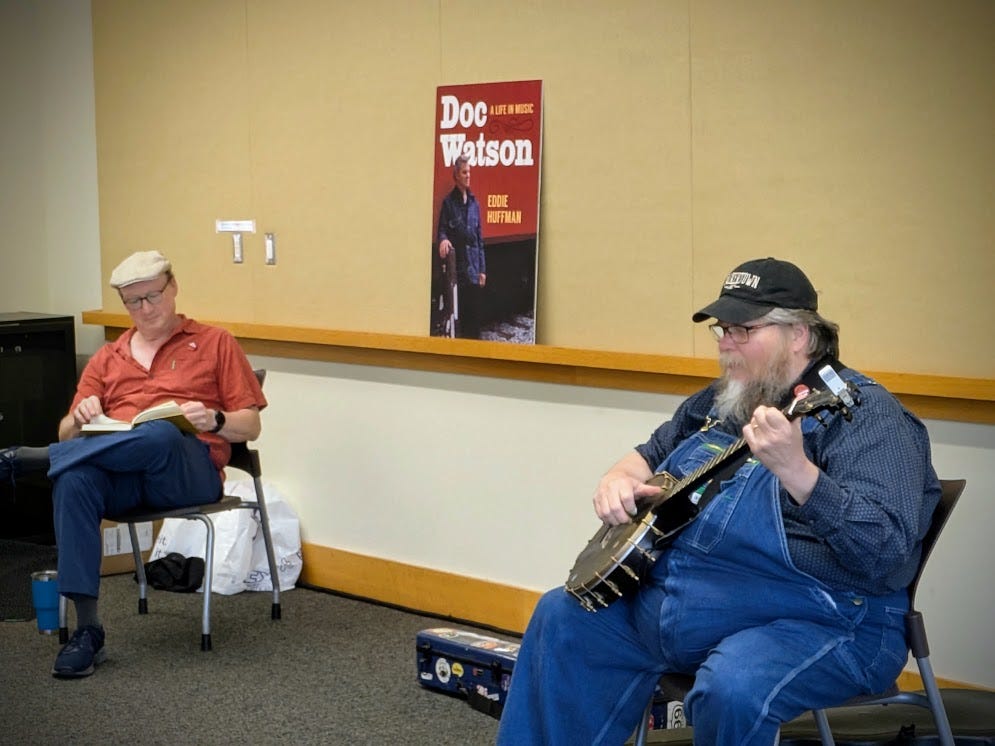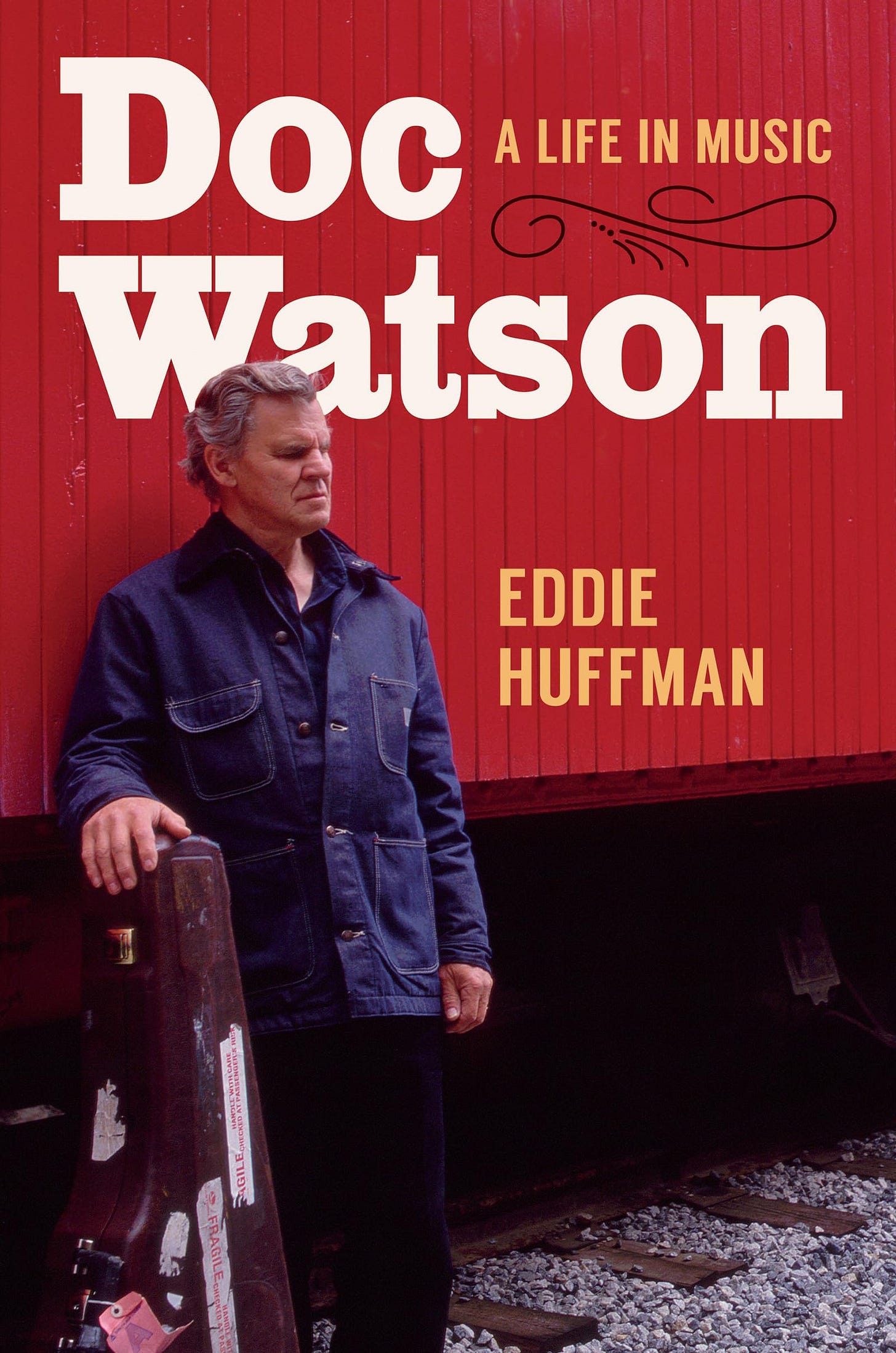Update on Doc Watson
His memory is alive and well!
What a treat, our local Chatham County Library hosted an afternoon brimming with music and storytelling, celebrating the life and legend of Doc Watson. Author Eddie Huffman discussed his book, Doc Watson: A Life in Music, with musical interludes by Riley Baugus, a banjo maker and musician who was friends with Doc.
The storytelling was top notch. Eddie shared from his five years of research (he later told me that his editor originally gave him a two-year deadline - ha!). Riley, with his personal and musical connection, offered a treasure trove of anecdotes as well. Both men also spoke admiringly of Doc Watson’s own legendary and lengthy storytelling prowess.
One of my favorites was Riley’s description and demonstration of how Doc learned his famous song “Deep River Blues.” Originally by the Delmore Brothers and titled “Big River Blues,” Doc apparently felt the original title could be more interesting, and renamed it. As Riley put it, Doc spent years deciphering how to play the song, which was challenging because the Delmore Brothers’ version featured multiple parts on separate instruments. He eventually adapted it to his own unique fingerpicking style, playing all the parts himself. Riley vividly demonstrated this, first thumping out the discordant bass beat, then adding a few higher notes to punctuate the rhythm, and finally layering on the well-known melody and singing. While I didn’t get the demonstration on video, here’s Riley on one of the later verses.
Doc Watson was not only a musical genius; despite being blind from age 1, he was a skilled carpenter and electrician, even taking care of roof repairs by himself. When he started playing music as a way of making a living, he would travel by bus to distant places like New York City. His son, Merle, later joined him on guitar. Both Eddie and Riley agreed that Merle was an astounding guitarist—a flatpicker like his father as well as a slide guitar player—though music wasn't his destined path in life. He died in a tragic midnight farm accident after heavy drinking. Today, the famous MerleFest folk festival is named in his honor.
RosaLee, Doc’s wife of 65 years, was also a musical talent. She performed with Doc, and they co-wrote the well-known song “Your Lone Journey.” She even taught Merle his first chords on guitar. Riley painted a picture of their lives together, sharing little details like his long phone conversations with Doc and RosaLee, just friends catching up. He also spoke movingly about the impact of Merle’s death on her health. When she moved into a care home in Boone, NC, Riley and Doc would visit, playing music for her.
After visiting RosaLee, Riley shared his most vivid memory of Doc, the two men walked melancholy through the quiet downtown of Boone. They came to the bronze statue of Doc Watson installed by the town. As Riley put it, the statue was created only after many years of asking Doc’s permission, but he was a humble man and had for many years rejected the idea. This day, the men sat, and Doc became playful, grinning threw his arm around himself-the-statue. Before long, townsfolk stopped to talk, came out of their businesses, gathering round. Doc spent some hours in a mood of lightness telling stories and greeting friends and fans.
Throughout our own afternoon together, Riley played and discussed many of Doc’s songs. He played “Matty Groves” which I hadn’t heard before, and “Little Sadie,” for which I have a soft spot. He went back and forth between guitar and banjo, the former being more of an homage to Doc, the latter his own specialty. He also made a point of singing “a song where the lady wins,” launching into “Katie Morey,” in which the protaganist tricks an ill-intentioned suitor into a climbing a tree, insults him, then leaves him stranded. Ha!
It was a great afternoon of music and storytelling. If you’re interested in the book, you can find it at various retailers including the UNC Press, where it was published: Doc Watson: A Life in Music.



Great write up!